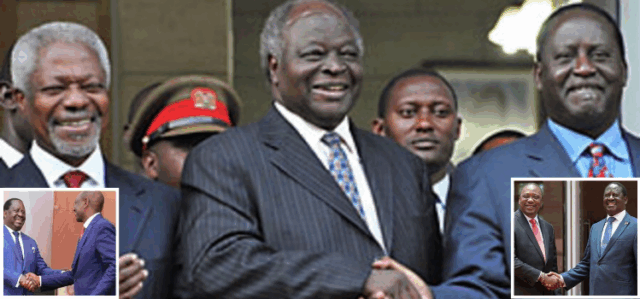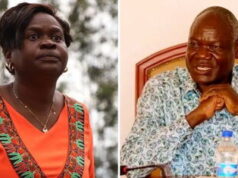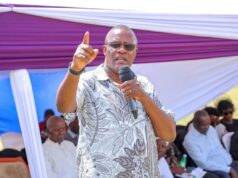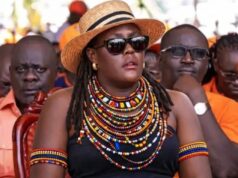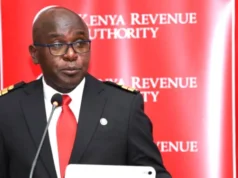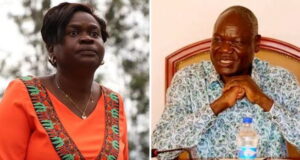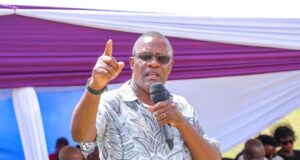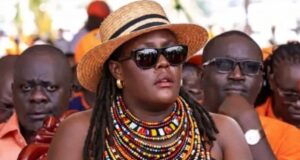It might surprise you, but Raila Odinga could easily go down in the Guinness Book of Records as the global king of political handshakes. Few leaders have mastered the art of political pacts without power like him. He has made more consequential handshakes than perhaps any other politician in Africa, each one steeped in business, politics, or survival. Never mind their spirit or outcome.
The first handshake came early with Jomo Kenyatta. A young Raila, then managing his father’s business interests while Jaramogi Oginga Odinga was in detention, was supplying gas cylinders to Kenyatta’s Gatundu home.
Raila himself recounts this moment in The Flame of Freedom. That handshake was business centric, not revolutionary. His ideals were never purely about social justice, they had a capitalistic hue. Once a businessman, always one.
The handshake with President Moi was perhaps the most misunderstood. After a short lived collaboration following the 1993 elections, it was in 1998 that Raila formally joined forces with Moi, an alliance many viewed as betrayal but which offered him political growth in the executive. These handshakes, it seems, often quiet dissent while opening doors to opportunity.
Then came the Kibaki handshake after the 2007 post election violence, an election many believe Raila won. This was his closest taste of executive power. As Prime Minister, he made impactful decisions, but never with full authority. It was power in theory, rarely in execution. Still, it allowed him to rally support, shape policy, and redefine leadership without presidency.
The Uhuru handshake of 2018 was the most curious of all. It was silent, sudden, and seismic. This truce sidelined Raila’s key allies and seemed to alienate his core supporters. But it also gave him access to state machinery and allowed him to influence governance without contesting power directly.
Ironically, it became the very handshake that cleared the path for William Ruto’s rise by fracturing the Jubilee coalition and altering Kenya’s political balance.
The Ruto handshake, if we dare call it one, wasn’t born out of political strategy but public pressure. It was brought about by the Gen Z protests in 2024, a youthful uprising that forced both men to acknowledge the limits of power and the power of the people.
This handshake may be Raila’s most transformative yet. It isn’t anchored in political convenience but in national necessity. It signals a pivot to genuine democratic engagement, where Raila’s demands can no longer be ignored and where government must listen or risk breaking.
In all these handshakes, one thing is constant, business is king.
Whether through deals, influence, or survival, Raila Odinga has mastered the art of reigning without ruling. His handshakes have shaped Kenya’s history, often without him ever holding the presidency.


